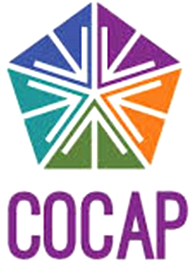Impact Investing Looks Local
The case for community capital (CoCap) is so plain, even Stevie Wonder can see it.
Show of hands: how many of our readers are investors? Do you happen to own a piece of Dell Technologies? (Its revenue last year was $59B.) Did you buy Yahoo when it was $100/share? (It’s now eight times that.) Try this: do you have money in a bank? That’s an investment, right there.
And all investment has impact. If you stop to think about it, banking operates on a curious, fundamental premise. If I rent a space and paint gold over my front door, people will flock to bring me wheelbarrows of money. So long as, when demanded, they get back the same amount back as their deposit, no one asks what their money is doing at night. Have you asked yourself if you know where the money in your bank account is tonight? Is it devastating mountaintops in Appalachia? Or is it contributing to acid rain?
Even if you just buy food, you’re an investor.
Everyone is an investor — all investment has impact — — and everyone is a local citizen.
Yet many many people choose not to think about their ownership of their own wealth if it be in the form of taxpayers’ dollars or the money that flows out of the community into the hands of a privileged few. This inexplicable ignore-ance enables an uneven playing field. The situation, and a viable alternative, were vividly and passionately painted at CoCap16, this month, by keynote speaker Marjorie Kelly, Senior Fellow and Executive Vice President of The Democracy Collaborative.
She pointed out that, in America, the richest 10% own 60% of the nation’s assets. Moreover, 1% own 1/2 of all stocks and funds. Furthermore, 74% of debt is held by the bottom 90%. Thus she calls the trickle-down theory of economics as really extraction by the 1%. She finds it extraordinary that we think the history of people of power is normal, and their methods of extraction are considered legitimate. And thinking such a skewed view of reality is normal creates social bias (sexism, racism, etc), which enables further income inequality. Actually, when Marjorie Kelly sees the D0w is up 10%, she sees that inequality is up. We are, she says, colonized by capital. To envision an alternative to extractive is to move beyond a vocabulary of sustainability into a conversation about regeneration.
50 x 50
Looking at the positive side of the balance sheet, Majorie Kelly invites us to see the possibility of economic inclusivity in finance. The employee ownership movement, for instance, is ready to scale up. Case in point: transitioning to a work-owned cooperative, Real Pickles, raised $500,000 in community investments, in two months, using an innovative, democratic finance method — a Direct Public Offering (DPO), rather than an IPO. Another thriving employee-owned company is Gardeners Supply, which, besides a retail outlets has catalogs and an online business, with ±220 year-round positions, plus 120 seasonal ones. It became worker owned by selling shares in the company, through an Employee Stock Ownership Program (ESOP). Without worker ownership, positions such as in customer service and manufacturing, might have gone overseas. And with worker participation, the company is thriving with productivity and innovation.
Marjorie Kelly looks forward to seeing 50M employee owners by 2050 (50 x 50). She notes we’re living in a time of a silver tsunami. 70M businesses are run by boomers ready for retirement. This translates into the largest intergenerational transfer of wealth in our lifetime. In the wings are the millennials, a generation scrupulous about social, environmental, and economic values. Will we have an economy for them that can accommodate their desire to invest in the social good?
We no longer need to think of investment as being restricted to the wealthy, but as, rather, for all of us. The commonwealth. Daring to bend the curve of history, we can move towards a radical redistribution of wealth.
CoCAP / Neighborhood Economics
This is is the 1st of series of exclusive reports from the 3rd annual CoCAP (Community Capital) gathering, held on September 12, 2016; a co-presentation of BALLE ([say “Bolly”] Business Alliance for Local Living Economies), Impact Hub Oakland, and Jenny Kassan Consulting. CoCAP was also lead-in for this year’s SOCAP, which began with a full-day symposia on Neighborhood Economics, September 13, about which we’ll also be reporting here.
For a copy of Marjorie Kelley’s 2015 report, Cities Building Community Wealth, click here.

